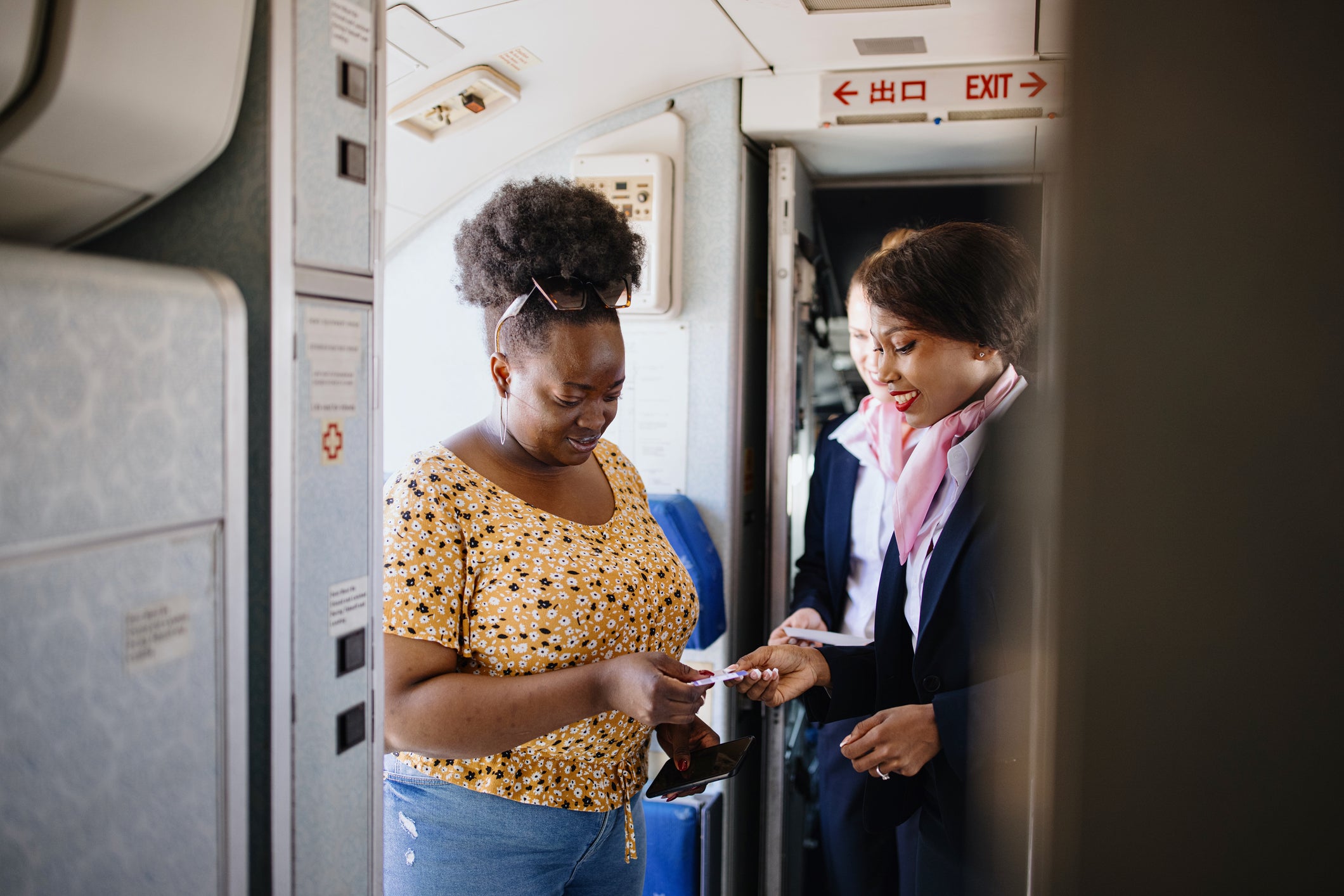
The travel hack of skiplagging has been garnering a lot of attention in the past few weeks thanks to a North Carolina teen.
Last month, American Airlines temporarily detained a 17-year-old traveler for using the flight hack known as skiplagging, or hidden city ticketing, when traveling from Florida to New York with a layover in Charlotte, which is where he actually planned to end his trip. Flying by himself, the teen was “detained and interrogated” at a Florida airport, where an American Airlines representative canceled the ticket until his family purchased a new direct flight. Additionally, American has banned the teen from flying with the airline for three years.
With this story in the spotlight, it is leaving many travelers wondering what this hack is and if it’s worth the risk to save money. Here’s what you should know.
What is Skiplagging Exactly and Why Do Airlines Hate It?
Skiplagging is when a traveler books a flight with multiple stops, whereby one of the layovers is the intended destination. This is often done when a direct flight between two cities is more expensive. Once at the layover city, travelers leave the airport without taking the other leg(s) of the fight.
Skiplagging is a travel hack that has been around for decades. The website Skiplagged.com brings this hack to the masses. According to the website’s COO, Dan Gellert, users can save 50-60% on some routes and upward of 80% on direct flights through their platform.
Ultimately, an airline’s disdain for skiplagging boils down to money. Gellert explains that while Skiplagged.com looks like other travel sites, the fundamental difference is they do not exist to help airlines sell flights or hotels sell rooms. Their sole focus is to aid travelers in saving money. Some of their competitors are often paid millions for advertising and commission, but Skiplagged.com, on the other hand, is not. That means they are not afraid to ruffle some feathers if that means travelers can keep their coins. “Customers are our users, and we need to work hard to get them the best rates possible,” he says.
While the practice is heavily frowned upon by the airline industry, it is not an illegal one. However, in a statement to Queen City News regarding the detained teen, American Airlines stated that it is against their rules. “Purchasing a ticket without intending to fly all flights to gain lower fares (hidden city ticketing) is a violation of American Airlines terms and conditions and is outlined in our Conditions of Carriage online.”
Other airlines may have similar statements in their own conditions of carriage contracts, so be aware.

Weighing the Pros and Cons of Hidden City Ticketing
The truth is, savvy travelers have been skiplagging for years and there are several ways to stay under the radar. Those ways can range from flying with different airlines or purchasing flights without a mileage rewards number attached. Another way skiplagging travelers remain undetected is by creating a ruse. Once they reach the intended location, they inform the airline that they cannot continue traveling due to not feeling well or some sort of emergency that altered their travel plans, prompting the airline to cancel the second portion of the flight.
There are two considerable risks to skiplagging: being banned by an airline and having to pay for the cost difference in airfare if caught. If you are traveling on a tight budget, the latter can have a significant financial impact. For those who live near smaller airports or airports with limited routes, being banned by an airline is less than ideal. However, for some travelers, it’s worth the risk.
Although she has not tried this hack for her personal adventures or client’s trips, travel specialist Tisha Neufville of Neufville Travel shares these tips for anyone looking to try skiplagging:
- Book each leg of your trip as a one-way ticket instead of a round trip. This will create two different confirmation numbers and itineraries, which can aid in not having your return flight home canceled.
- Do not check a bag. Because your checked luggage gets tagged to your final destination, you will likely be unable to retrieve it once you land at the layover city. Utilize the airline’s carry-on and personal baggage allowance instead.
- Avoid doing this for large groups or family trips. While travel mishaps occur, it can raise a red flag for airlines if an entire group or family is missing from a flight. It would be best to engage in skiplagging when you travel alone. If you are traveling in a group, each adult should have their own itinerary.
- Avoid booking with miles if you know you want to try this hack. The last thing you want to do is lose rewards that you spent money to earn. As airlines are getting more hip to the travel hack, one of the risks could be the revocation of miles. They can be a travel asset in helping you secure free flights, in-flight (or lounge) drinks and food, upgrades, and in avoiding paying for checked luggage.
When it comes to using Skiplagged.com for your travel hacking, Gellert says do not abuse the practice. While he boasts about the website’s reward program, he also says you shouldn’t rely upon this method. “We recommend doing this as needed or a couple of times a year but not for all your travel needs.”